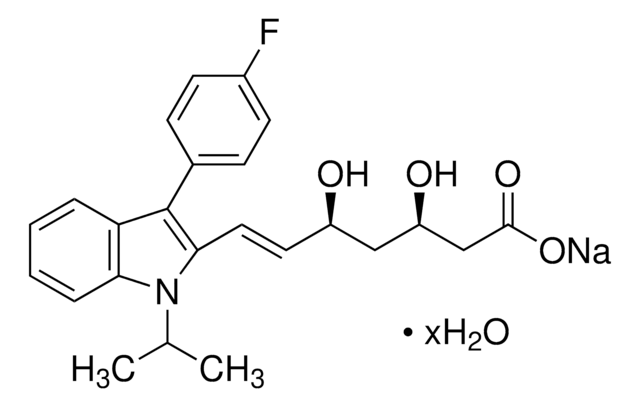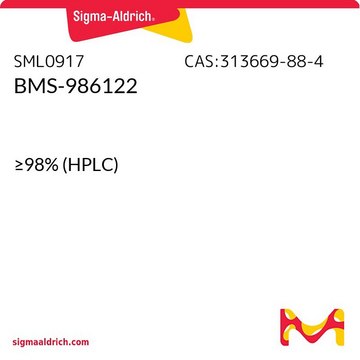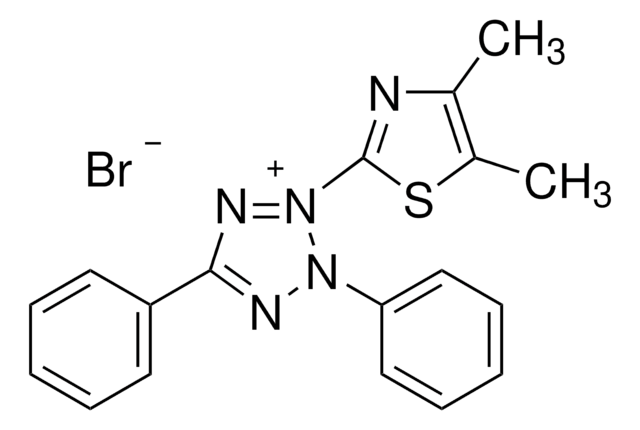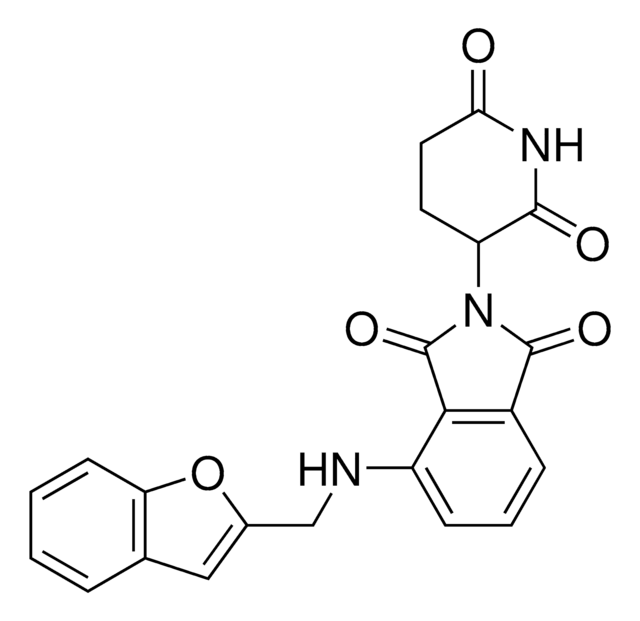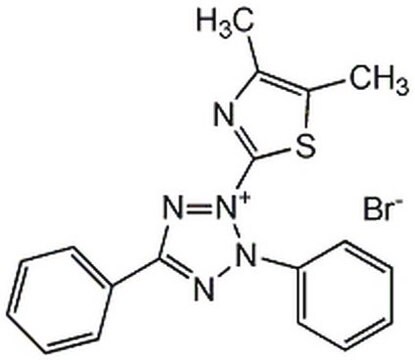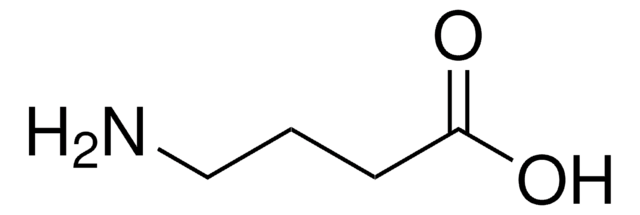L9919
LY2033298
≥98% (HPLC)
Synonyme(s) :
3-Amino-5-chloro-N-cyclopropyl-6-methoxy-4-methyl-thieno[2,3-b]pyridine-2-carboxamide
About This Item
Produits recommandés
Niveau de qualité
Essai
≥98% (HPLC)
Forme
solid
Conditions de stockage
desiccated
Couleur
off-white to tan
Solubilité
DMSO: >20 mg/mL
Auteur
Eli Lilly
Température de stockage
−20°C
Chaîne SMILES
COc1nc2sc(C(=O)NC3CC3)c(N)c2c(C)c1Cl
InChI
1S/C13H14ClN3O2S/c1-5-7-9(15)10(11(18)16-6-3-4-6)20-13(7)17-12(19-2)8(5)14/h6H,3-4,15H2,1-2H3,(H,16,18)
Clé InChI
CTEGQKDJTBWFHW-UHFFFAOYSA-N
Actions biochimiques/physiologiques
Caractéristiques et avantages
Mention d'avertissement
Danger
Mentions de danger
Conseils de prudence
Classification des risques
Resp. Sens. 1
Code de la classe de stockage
11 - Combustible Solids
Classe de danger pour l'eau (WGK)
WGK 3
Point d'éclair (°F)
Not applicable
Point d'éclair (°C)
Not applicable
Faites votre choix parmi les versions les plus récentes :
Certificats d'analyse (COA)
Vous ne trouvez pas la bonne version ?
Si vous avez besoin d'une version particulière, vous pouvez rechercher un certificat spécifique par le numéro de lot.
Déjà en possession de ce produit ?
Retrouvez la documentation relative aux produits que vous avez récemment achetés dans la Bibliothèque de documents.
Notre équipe de scientifiques dispose d'une expérience dans tous les secteurs de la recherche, notamment en sciences de la vie, science des matériaux, synthèse chimique, chromatographie, analyse et dans de nombreux autres domaines..
Contacter notre Service technique
